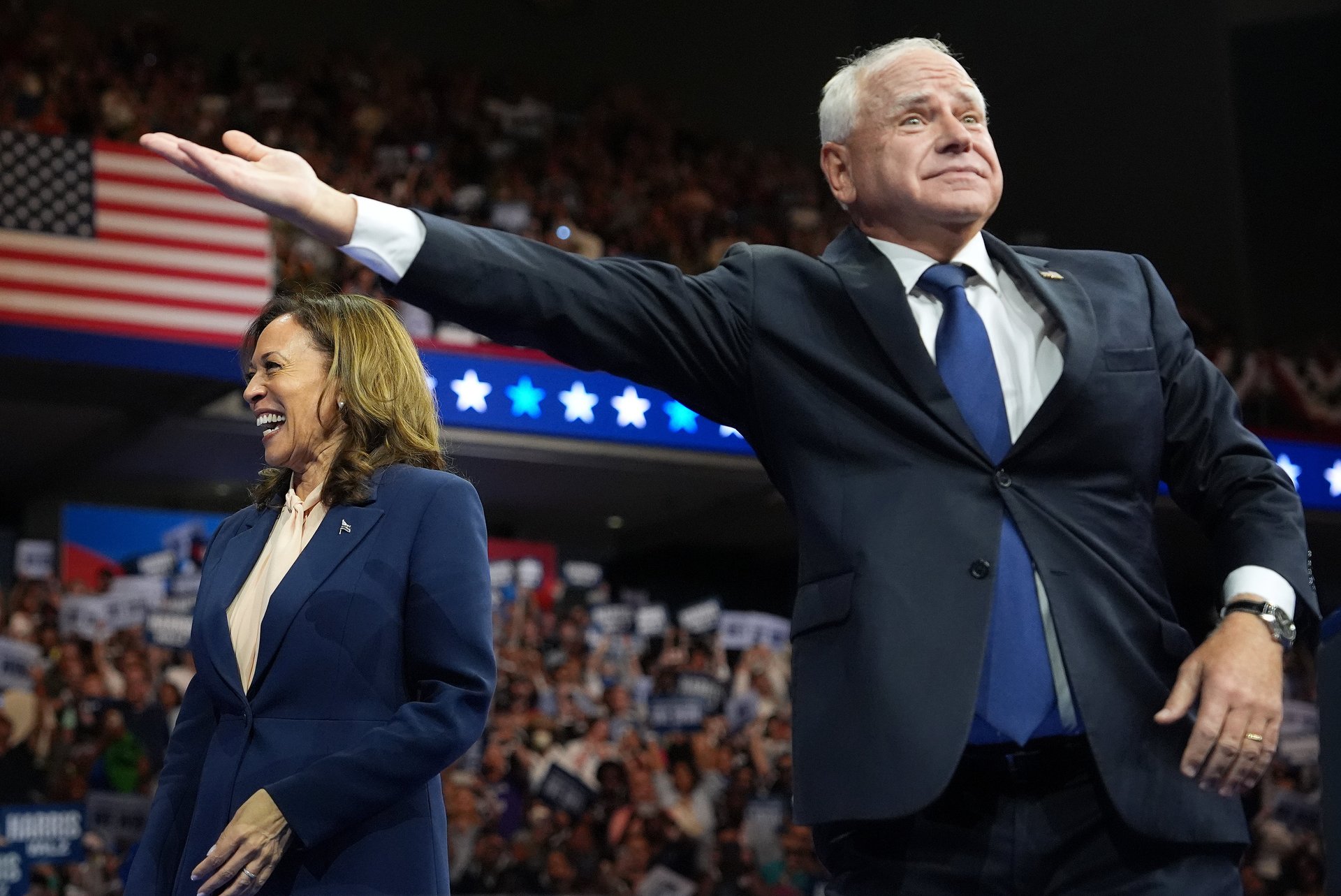The Democrats raised $41 million after Kamala Harris picked Tim Walz to be her running mate
The Minnesota governor was announced as Harris's running mate on Tuesday morning

Vice President Kamala Harris’s decision to pick Minnesota Gov. Tim Walz as her running mate appears to have given the Democrats their best day for fundraising since the week President Joe Biden ended his re-election campaign.
Suggested Reading
Democratic fundraising platform ActBlue raised more than $41. 3 million through donors on Tuesday, according to a third-party tracker. On July 21 and July 22, the day of and the day after Biden said he would only serve one term in office and endorsed Harris’s campaign, ActBlue recorded $66.9 million and $67.2 million in donations.
Related Content
Donations appear to have spiked around 12 p.m. ET on Tuesday as the western half of the U.S. woke up to the news of Harris’s choice. Another major increase can be spotted at around 7 p.m. ET. after Walz addressed a crowd during a rally in Philadelphia. He was joined by both Harris and Pennsylvania Gov. Josh Shapiro, a rival and finalist for the vice presidential nominee slot.
Although not all of those donations can be attributable to Walz, it’s probable that enthusiasm for Harris’s decision boosted fundraising. At around 6:30 p.m. ET, while Walz and Harris were on stage, the Harris campaign told reporters it had raised more than $20 million since it was announced Walz would join the ticket.
That’s a good sign for Walz, who lacks some of the sheer star power and flush coffers of his former rivals in the so-called “veepstakes.” Walz — a former member of the Army National Guard, high school teacher, and football coach —was up against a slew of rivals that included powerhouse party members like Illinois Gov. J.B. Pritzker and Secretary of Transportation Pete Buttigieg.
Across his six terms and 13 years in Congress representing Minnesota’s first district, Walz raised just $11.3 million, according to OpenSecrets.org, a nonpartisan group tracking money in U.S. politics. His biggest contributors came from workers at the Mayo Clinic, the law firm Robins Kaplan, and the International Association of Sheet Metal, Air, Rail and Transportation Workers, or SMART.
During his first candidacy for governor, in 2018, Walz raised $5.3 million from thousands of donors. He more than doubled that just four years later when he ran for re-election, raising $11.5 million.
Collectively, over his entire career, Walz raised a total of $24 million. While that’s a significant amount of cash, it pales in comparison to the funds his rivals for the vice presidential nomination had raised.
Pritzker was — by far — the biggest fundraiser of them all, as long as the candidate’s own cash is considered. Of the more than $335.6 million his two gubernatorial campaigns have raised, $323.6 million came from his own accounts.
The Illinois governor is worth $3.5 billion, making him the among the top 1,000 richest individuals in the world thanks to his family’s fortune and the private equity firm he once ran, according to Forbes. Walz, comparatively, had a net worth of just $13,502 as of 2017 and was the 356th wealthiest member of the House, according to OpenSecrets and financial disclosures. Walz’s only income comes from his $127,629 salary as governor, according to his most recent statement of economic interest.
Walz is also lacking in the sheer star power that his contemporaries have, at least to the general public, partially due to his low profile. Recent polling from Marist University found that more than seven in 10 Americans don’t know Walz enough to have an opinion of him, despite his lengthy tenure as a public servant. Although, some may recognize Walz for pioneering the push to call Republicans “weird,” which has since become widespread among Democratic officials and candidates.
Veepstakes finalist and Arizona Senator Mark Kelly raised more than $191 million across his 2020 and 2022 election campaigns, while Buttigieg collected almost $100 million before he suspended his 2020 presidential campaign and Shapiro collected $72.6 million for his first term in office.
